Reviews list for Metallica - ...and Justice for All (1988)
I class the first four Metallica albums as being a true “golden run” of records - I have stated this on MA before I am sure so let’s not go over old ground. Needless to say that for as much as I can see why …and Justice for All gets criticised, it is still a vicious and scathing thrash metal album that from the off is clearly made by a band on the attack. One of the key strengths of Metallica’s 1988 offering is how technical yet spontaneous it manages to still sound. The flurry of activity that is the razor sharp album opener, “Blackened” is evidence of an album that is going to be positively spilling over with riffs and chops, all blending, transitioning and morphing into a thoroughly entertaining experience end to end. Whilst not flawless, the bands fourth album is a celebration of energetic thrash metal that clearly showed a band able to carry on without a key member so tragically torn from their ranks.
Now then, let us get this bass discussion out of the way at this early stage of the review. I agree, it is a travesty (however it happened) that Jason’s four strings get so little (if any) air-time. However, the fact is, I do not miss the bass in all honesty. This is the real clever part of …and Justice for All for me, to produce an album of such intensity without the bass being prominent shows quality as far as I am concerned. Is the album sterile or brittle sounding as a result of this component lacking input? Not to my ears, no. Does any of the messaging land poorly because we do not have the rumble or twang of the bass? Again, no it does not. Not to my ears anyway.
If I am to point to a critical finger at the record then it is the contrasting quality of the song writing that gets the digit wagged at it. It is hard to believe that the same album that contains the title track, “Harvester of Sorrow” and “One” also has “Eye of the Beholder” in at track number three. It risks an early derailment of the promise of the first two tracks that thankfully does not come to fruition. Although it does marginally better than “To Live is to Die” which although I get the sentiment of, just does not manage to move me as perhaps it should.
In a world were it is more or less universally recognised that Metallica are a shadow of their former selves, their final true thrash metal release is a celebration of their early career before the band chose an increasingly commercial path at whatever crossroads they visited latterly in their lives. If you like your thrash metal full of grit, steel and technical prowess then you should own a copy of …and Justice for All as a mandatory release in your collection.
It's about time I reviewed this album. Metallica is my number one metal band, but it's been ages since I gave this whole album a spin. Part of it is that I prefer the more atmospheric production of Ride the Lightning and the catchiness of Master of Puppets. But I really do love a good prog album, and easily find myself making up proggy rhythms on a daily basis for fun. Honestly, I haven't been living up to my status as a Metallica fan, and I need to at least memorize a couple of the lesser-known songs from this album. So since I've been doing a lot this week, I'm taking a little relaxation today to just chill and re-evaluate this album, instead of going through some jazz to help with a couple lists I'm working on like usual.
This is basically Metallica's "hey, look what we can do" album. No joke. This whole album was about showing off. Don't believe me? Listen to "Blackened" and tell me its outlandish and outrageous behavior doesn't bring to mind Frank Zappa. We have pieces of 3 different songs taped together in a brutally bold and experimental thrasher that challenges any aspiring guitarist's mental capacity while remaining as catchy as it is intriguing. And that's within six minutes. The title track is different. it's slower and more melodic, going into groovy and even solemn solos like these nine-minutes are just another three. I had accused Master of Puppets of being bloated before, and still say that it feels as such when compared to the shorter Ride the Lightning, but this one song fixes that.
"Eye of the Beholder" barely has any progressive behavior to it, largely encompassing the time change in the chorus. Otherwise, it's about as proggy as the least proggy songs on MoP. And up to that point, it's the shortest featured song (by ten seconds). It bears an almost groove metal sound. Ironically, its repetitive main melody combines perfectly with the more healthy melody of Hetfield's lyrics. It would stick out like a sore thumb if not for the usage of the same instruments, tones and emotions of the opener. it's a straightforward song that acts as a reminder that you're listening to Metallica, and not some heavier King Crimson knockoff. Good choice on their part, and a good justification for the simplicity in comparison. This decision brings to mind the lowering levels of heaviness in side A of Ride the Lightning, where For "Whom the Bell Tolls," track 3, was barely grasping the thrash tag for love of gothic poetry. So while this song is still a great one, it's probably the worst thus far, whereas the same can't be said for For Whom the Bell Tolls.
And now for "One," which is the big hit from AJFL. As is standard for Metallica albums at the time, this is the point where the ballad behavior comes in. And this one's serious about that singer-songwriter guitar style. The acoustic and electric effortlessly mold into a serene but chilling intro into a lyrical memory of war. This song is a heavy reminder that Metallica are just as lyrically relevant as they are technically. Of course, the band was never afraid of bringing the ballad into a heavier realm. We have breakdowns for the third act, and after what we just got, this turn of events brings our despair into anger and potential insanity. This slow and simple behavior expands into hyper-velocity hypnotism that takes us on a metronomic journey through an explosive battlefield via aural presence rather than lyrics. Eventually, it just jams and rocks it like a tux.
Disc 2 begins with "The Shortest Straw," which kicks off with tribal drumming and riffing with a slightly industrial approach in its composition. But afterwards, its song structure becomes more typical and even dives into the heavy jamming of speed metal bands like Venom and Exciter. You can sense some punkish energy coming from Hetfield in this one. Kicking off the second disc with a more blatant "speed / thrash hybrid sound as opposed to pure thrash was a good choice. After it seemed like all of Metallica's tricks had been used up on this song, you may have forgotten the speed metal they dabbled in since Kill 'Em All. This song is also the most melodic and riff-oriented song so far. There isn't any time for repetitive riffs after the short intro is done, until the third act. It's all about boasting that jamming you know rock and metal for. The third act goes back to the behavior of the intro with a guitar solo attached or about 30 seconds before the final verse. Honestly, for its more poppy and speedy sound, this feels like one of the most (but not THE most) creative songs on the album. It made me hyped for what was coming next.
"Harvester of Sorrow" is a favorite among Metallica fans, but up to this point, I'm ashamed to admit that I had no recollection of it until it came on. Lars was back to standard Metallica behavior as a gothic tone took the intro and slow and steady took the rhythm with haunting backing effects. There's a powerful evil edge in the slow pacing. Makes sense considering the lyrical content is about a man snapping and abusing his family. This is maybe the darkest song so far. If it were speedy, and had more background detail, it would likely lose its potency. The weird thing is that it's the shortest song so far, even though its potential could've been expanded on considering the overly experimental quality of the intro, so it's a bit of a shocker to me that this song didn't have an extra two minutes attached for some weirder directions. But, it still never lost its power. Lyrically, the subject matter reminds me of the first time I read about a father murdering his family, the father of young actor Judith Barsi.
Now at song seven, I had decided that since only two songs out of six fit the prog bill, I was hoping this next song would fix that and get back into the prog game. "The Frayed Ends of Sanity" begins with a metallic version of the guards' song in Wizard of Oz. Better than when Septicflesh wrote the song "Communion" and accidentally did a symphonic death metal variant of the Meow Mix theme song, right? This song goes back into the most standard behavior one expects from Metallic and sounds like something right from Master of Puppets. It has more melodic and rhythmic capacity (more notes) but despite its strong grip, it's not quite as dark as "Harvester of Sorrow." But since it sounds like a recreation of the previous album, I still give it points for unpredictability.
Now we get to some real craziness: "To Live Is to Die." This is normally the part where Metallica whips up a nine-minute instrumental epic. As an acoustic solo is overtaken by a simple metronome of deep and heavy drumming and sluggish riffing which Melvins would be proud of, one immediately comprehends that the black distortion of "Blackened" may return. Its jam factor largely follows suite for a few minutes allowing the song to slightly mutate overtime in its own repetition. Eventually, it caves into the somber side of the word, "epic," but never breaks tradition or goes into Hans Zimmer territory. Halfway through, our metal does become quite and give us a slight bit of violin, following the metronomic pattern of some pieces of this song. And we end with the song getting more quiet and melodic overtime, representing a full mutation. So we have a perfect balance of simplicity and complexity here, as this song shows the band is proud of the changes they put it through for nearly ten minutes.
The final song is the fastest, nastiest and the shortest of them all: "Dyers Eve." It bears the temple of "Fight Fire with Fire," starkly contrasting with the previous song's ending and bearing connection to the first half of "To Live Is to Die" via genre. It's a beautiful clash of styles that even further justifies the album's creativity over more than an hour. This straightforward thrash song recalls the desperate attempt at heaviness that most early thrash bands were trying to achieve, being known for breaking the sound barrier of metal rather than being known as great songwriters. And this album recalls Metallica's success at combining both approaches to metal.
I'm actually very happy about this decision I'm about to make: And Justice for All is more suitable of a metal album for me than Master of Puppets. See, Master of Puppet's relationship to Ride the Lightning makes the album feel a bit bloated with its extra ten minutes, raising RtL's 45 to 55. But And Justice for All is constantly changing the game and manages to overcome this behavior while adding ten again. It's 65 minutes of variety. The band never changes their instruments or expectations, but becomes a more technical and progressive band at the same time. And Justice for All shows Metallica not only having further mastered their signature sound, but going into stronger variety. Unfortunately, all of this was still beaten by the fresher RtL. But this album has its own edge that has earned its place among the "Best Metallica Album" debate which RtL currently seems to be winning. Many would debate RtL verses MoP and laugh at those justifying The Black Album. But in recent times, AJfL has been resurging in popularity, and it perfectly deserves it. No longer may those who grew up with conventional songwriting knock this album off for being too weird. So I'm lowering my rating and position for Master of Puppet swhile raising both for this one.
It's 2001 and I'm 14 years-old, new to the world of metal, and a huge Megadeth fan (or so I thought...). They'd just released their album 'The World Needs a Hero', in which they went "back to their metal roots" (every band goes through this phase). Tuning into Kerrang TV, they were midway through a video that, for whatever reason, I suspected it may have been Megadeth's video for 'Moto Psycho'. It was heavy, it was aggressive, and I was headbanging to it with my measly one inch of hair which I couldn't wait to grow longer. I also couldn't wait to get the new Megadeth album because this song kicked ass!
Except, it was Metallica's 'One'.
2001 was an exciting year for a 14 year-old metal fan living in the UK. With the nu metal scene having completely taken over the world, no doubt with huge thanks to the few channels that had popped up on TV dedicated to rock music, the genre was rife with bands such as Linkin Park, Korn, Slipknot and Limp Bizkit. However, despite all the bands that were tearing up the charts, it was Metallica's '...And Justice For All' that I was seriously digging. I loved the ten-minute songs with two-minute intros. I loved the complex arrangements with constant shifts in dynamics. I loved the guitar harmonies. I loved it all!
There's no denying the influence this had on me around that period of my life. Eventually leading me to progressive metal, a genre this album arguably had a huge hand in influencing in its infancy, bands like Dream Theater and Symphony X just seemed like the next logical step from here. Intricately crafted guitar riffs, harmonies and solos, with some of Lars Ulrich's most challenging drumming (which, fair play to the guy, he may have a rather limited skill set, but he sure busts his chops on this one), make this Metallica's most ambitious album, with the band themselves often citing how this was the most complex stuff they'd done.
The production is often criticized, but I was too young to care about such trivial things when I first got this record, so I find myself unfazed by it now. In fact, I find the sound, which comes across as very dry and gritty, sets the mood perfectly for this incredibly dark and bleak album. And with songs like 'One', 'Blackened', 'Harvester of Sorrow', 'Dyers Eve' and 'The Frayed Ends of Sanity', this is an absolute classic that belongs in the collection of any metal fan.
Metallica enter a slight stylistic shift towards the progressive, slowing down a bit and delivering more complex, technical rhythms. This is actually quite possibly their least accessible album, not only lacking any sort of anthemic rockers, but also being pretty much a downer in mood the whole time. In addition, it tends to focus more on technicality and rhythm instead of instantly memorable riffs. That’s not to say the music here is really complex, but certainly more so than previous albums.
From that, you can pretty much tell what the strengths and weaknesses are. Here is Metallica at their darkest, most technically proficient, and most serious. It’s definitely got more points in terms of “thinking man’s music” than their other stuff, but on the other end, it definitely loses memorability. The songs are all quality, but most of them lack any insanely good riffs that get caught in your head. It’s also supposed to be their angriest album, but since the straightforward aggression is swapped for rhythmic precision, it certainly comes off as less passionate, and James is yelling in time more than he is in melody. This unfortunately sacrifices mood, which leaves songs a bit flat.
Now, there are two songs here that completely evade those weaknesses. “One”, as everyone knows, is an incredibly powerful “ballad” that basically goes through stages of grief, starting slow and somber before breaking out into manic frustration. Then there’s the closer, “Dyer’s Eve.” It’s possibly Metallica’s heaviest, angriest song ever recorded, detailing child abuse and showcasing Lar’s best performance yet. This song is so strong because James sounds very convincingly full of anger and hurt, and everyone is playing at the apex of their ability.
It’s certainly a “different” album even considering Metallica’s varied discography, but it was very much a success and resulted in some of their best material.
Rewarding! Superior to Master of Puppets in the long run!
This album sees Metallica take a more technical and progressive approach to songwriting, and I love how it turned out. "One" is sheer brilliance and the rest of the songs are overflowing with great riffs and an dark, angry vibe that Metallica never had before. This album's sophistication rewards repeat listens and has steadily climbed up my Metallica album rankings in all the years since I've been a fan.
...And Justice for All is better than the [slightly] overrated Master of Puppets and perhaps on near-even footing with the inspired Ride the Lightning. If the bass was more audible and "The Shortest Straw" was replaced with a song as great as the other eight, this would easily be a five-star album.
Metallica's flawed masterpiece and one of the defining moments of my life.
Most fans of metal music can easily look back on a particular band that first inspired them to delve into what can be a fairly inaccessible genre of music. I’m sure that in the majority of cases, the band in question was not from one of the more extreme styles of metal such as black metal, death metal or grindcore. The reason for this is that most people need an entry point where they can come to grips with a more accessible level of extremity before being equipped to take the next step. For me, there’s no question that Metallica were the band that kick-started my obsession. It would only be a matter of weeks from the time my brother (to whom I will be forever grateful!) handed me a cassette containing ...And Justice For All back in the late eighties, that I would be delving into the likes of Slayer and then Sepultura, followed shortly by Deicide, Morbid Angel and Bathory. These days there’s pretty much nothing that I find inaccessible from an extremity point of view (I'm not suggesting I find enjoyment in every style I hear), so I’m fairly unlikely to find many metal albums out there that are simply unapproachable given my experience. Yet despite this development of boundary limitations, my love for the band and the album that started it all has never diminished. The shining light of Metallica may have faded to black (sorry) long ago, but their heritage can never be taken away from them, or their fans.
Released on August 25, 1988, ...And Justice For All is the first full length album by Metallica after the tragic death of bassist Cliff Burton in a bus accident during the Master of Puppets tour. Jason Newsted had been selected from a long list of auditioning hopefuls to fill Cliff’s massive shoes and had displayed decent enough skills on the Garage Days Re-Revisited EP that the band had recorded as a test run for their new line-up and studio. The amount of effort that the band went through to find the right guy along with the significant preparation they put in to make sure they were ready before re-entering the studio makes it astounding that the blaringly obvious flaw with ...And Justice For All is that Jason is almost entirely inaudible. It’s a shame too, as this lack of low end, plus a generally sterile production overall, is a blemish on what is otherwise a fantastic and landmark album. Master of Puppets had already shown signs of the band adding a bit more complexity to their sound, but these progressive elements really came to the fore on its follow-up. The tracks are far greater in length than on previous releases which the band utilised to play around with complicated structures, branching off on technically adept tangents before returning to earlier established themes. As an album it makes for a fascinating journey, but it’s not surprising that the band rarely play these lengthy and complex tracks (such as the title track and To Live is to Die) in the live arena.
Lyrically, the album’s subject matter relates to injustice in the legal system (the bound and broken Lady Justice on the cover should give that away), freedom and war, and this sort of political and social commentary in Metallica’s music helped to establish these themes as “the new Satan” of metal music. While the level of complexity and increase in running time set ...And Justice For All apart from Master of Puppets, the band were forming a successful template of starting and finishing their albums with bursts of aggression, placing a ballad midway through to change things up, and including an epic instrumental in the bottom half. It’s a structural flow that works perfectly, running the gauntlet of emotions between two blood-pumping bookends. That being said, the album does have that midpoint lull (The Shortest Straw through to Frayed Ends of Sanity) that the band never seemed to be able to eradicate from their albums, but considering the general level of quality and surrounding classics like Blackened, the title track, One, To Live is to Die and Dyers Eve, it’s easy to forgive them. Over two decades have passed since Metallica changed my world, which is plenty of time for me to come to the realisation that ...And Justice For All is not the holy grail of all things metal that it so apparently was in my teenage years, but it holds a nostalgic place in my being and is just too damn important on a personal level for me to rate it anything below full marks.

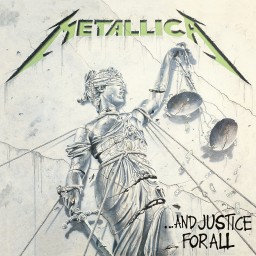
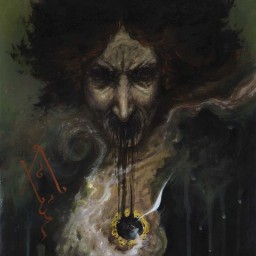 Vinny
Vinny
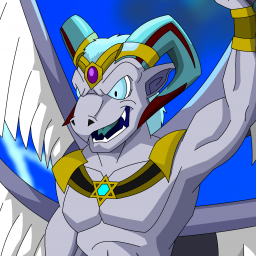 Rexorcist
Rexorcist
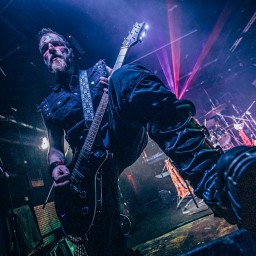 MartinDavey87
MartinDavey87
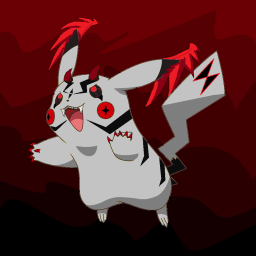 SilentScream213
SilentScream213
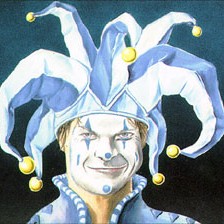 Ben
Ben